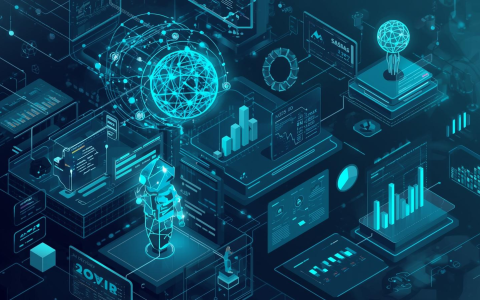A new initiative, dubbed ‘Doing AI Differently,’ is making waves by championing a human-centered paradigm for future artificial intelligence development. This isn’t just about lines of code; it’s a call to inject cultural understanding and nuanced interpretation into the heart of AI design.
For too long, AI outputs have been treated as mere mathematical equations. However, a team of researchers from leading institutions, including The Alan Turing Institute, the University of Edinburgh, AHRC-UKRI, and the Lloyd’s Register Foundation, argues that this approach fundamentally misunderstands the nature of AI’s creations.
Their assertion? AI is producing cultural artifacts – think novels or paintings – rather than spreadsheets. The catch? AI is generating this “culture” in an interpretive vacuum, akin to someone who’s memorized a dictionary but lacks conversational skills. As Professor Drew Hemment, Theme Lead for Interpretive Technologies for Sustainability at The Alan Turing Institute, puts it, AI frequently falters where “nuance and context matter most,” lacking the “interpretive depth” to truly grasp the meaning of its outputs. This is leading to a concerning situation where AI, in essence, doesn’t understand what it’s actually “saying.”
The report highlights a critical “homogenisation problem.” The reliance on a limited set of similar designs across much of the AI landscape creates systemic vulnerabilities. It’s like every bakery using the same recipe, leading to a glut of identical, uninspired cakes. In AI, this translates to replicated blind spots, biases, and limitations permeating countless everyday tools.
The consequences of overlooking these issues can be profound, echoing the unintended societal fallout from the early, simplistic goals of social media platforms. The ‘Doing AI Differently’ team is raising a crucial alarm to prevent history from repeating itself.
Their solution lies in “Interpretive AI,” systems deliberately engineered from the outset to mirror human cognition: embracing ambiguity, accommodating multiple viewpoints, and possessing a profound comprehension of context. The vision goes beyond simply surpassing human capabilities; it’s about constructing human-AI ensembles that leverage the strengths of both. By merging human creativity with AI’s raw processing power, we can tackle formidable challenges with unprecedented effectiveness.
The potential impact is far-reaching. Consider healthcare, where a patient’s experience is more than just a checklist of symptoms. An interpretive AI could capture that narrative depth, enriching diagnoses, fostering stronger patient-doctor relationships, and ultimately enhancing trust in the system.
In the realm of climate action, interpretive AI could bridge the chasm between global datasets and the specific cultural and political realities of individual communities, thereby driving truly effective, localized solutions.
While a new international funding call is poised to unite researchers from the UK and Canada in this pivotal endeavor, the clock is ticking. “We’re at a pivotal moment for AI,” warns Professor Hemment. “We have a narrowing window to build in interpretive capabilities from the ground up.”
For organizations like the Lloyd’s Register Foundation, this initiative is about the paramount importance of safety. Jan Przydatek, Director of Technologies at the Foundation, emphasizes that “as a global safety charity, our priority is to ensure future AI systems, whatever shape they take, are deployed in a safe and reliable manner.”
This initiative is not merely about enhancing technology. It’s about creating an AI that helps solve our biggest challenges and, in the process, amplify the best parts of our own humanity.
(Photo by Ben Sweet)

Original article, Author: Samuel Thompson. If you wish to reprint this article, please indicate the source:https://aicnbc.com/6644.html



